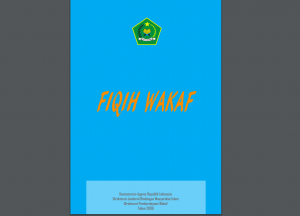Miranti Kartika Dewi[1], Ilham Reza Ferdian[2]
Abstract
As an endowment instrument in Islam, waqf has been acknowledged as one of the greatest Muslim charitable traditions to provide finance for sustainable humanitarian initiatives. However, researchers have historically given little consideration to that potency. This study documents various case studies on how Islamic humanitarian NGOs across the globe optimise waqf funds to support their activities in conducting sustainable humanitarian programmes. It begins by outlining the relevance of waqf before examining its potential scale, in addition to ways in which waqf is managed to improve the lives of beneficiaries. The study also highlights relevant issues regarding the promotion of waqf to realise its full potential and provides some suggestions for further research. Desk-based research was used to obtain most of the information presented in this paper, based on documentary analysis of public sources.
Keywords: Waqf, Humanitarian financing, Islamic philanthropy, Islamic social finance
1. Introduction
Muslim countries have been more severely impacted by the unprecedented rise in humanitarian crises (disasters) than any other part of the world. Indeed, 71% of the people (circa 89 million) in need of global humanitarian assistance reside in Organisation of Islamic Cooperation (OIC) countries (SESRIC, 2017). According to UNISDR (2009 p.9), a disaster can be defined as ‘a serious disruption of the functioning of a community or a society involving widespread human, material, economic or environmental losses and impacts, which exceeds the ability of the affected community or society to cope using its own resources’. In general, disasters can be classified as natural (earthquakes, tsunamis, volcanic eruptions, famine, deforestation, epidemic, etc.) or man-made (pollution, fires, wars, armed aggression, etc.) (Abdallah & Burnham, 2000). Disasters frequently result in unfavourable impacts, such as the escalation of poverty, for the communities they affect. Alarmingly, five OIC member countries account for over half a billion of the world’s poor with incomes below the World Bank’s international poverty line (USD1.90 a day – as updated in 2017). Many Muslim countries have also been reliant on humanitarian aid for longer than 10 years and are unable to elevate themselves out of the traps of poverty and other humanitarian crises (WIEF Foundation, 2018). The United Nations (UN) has predicted that climate change will prompt a further rise in the frequency and severity of future disasters (UN, 2016a). The situation is even more frightening when considering the impact of the global Covid-19 pandemic, whereby governments worldwide acted to protect their own citizens by introducing travel restrictions, advancing anti-migrant agendas and prioritising economic stimuli over global humanitarian responses (The Lancet, 2020).
[1] Faculty of Economics and Business, Universitas Indonesia, email: miranti.kartika@ui.ac.id
[2] Lariba Consulting; email: irferdian@laribaconsulting.com
Download: Waqf and Sustainable Humanitarian Financing – BWPS No. 5, 2021
![]()















